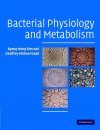![Bacterial Physiology and Metabolism Bacterial Physiology and Metabolism]()
Click to have a closer look
About this book
Contents
Biography
Related titles
About this book
Recent determination of genome sequences for a wide range of bacteria has made in-depth knowledge of prokaryotic metabolic function essential in order to give biochemical, physiological, and ecological meaning to the genomic information.
Clearly describing the important metabolic processes that occur in prokaryotes under different conditions and in different environments, Bacterial Physiology and Metabolism provides an overview of the key cellular processes that determine bacterial roles in the environment, biotechnology, and human health. Prokaryotic structure is described as well as the means by which nutrients are transported into cells across membranes. Glucose metabolism through glycolysis and the TCA cycle are discussed, as well as other trophic variations found in prokaryotes, including the use of organic compounds, anaerobic fermentation, anaerobic respiratory processes, and photosynthesis. The regulation of metabolism through control of gene expression and control of the activity of enzymes is also covered, as well as survival mechanisms used under starvation conditions.
Contents
1. Introduction to bacterial physiology and metabolism
2. Composition and structure of prokaryotic cells
3. Membrane transport - nutrient uptake and protein excretion
4. Glycolysis
5. Tricarboxylic acid (TCA) cycle, electron transport and oxidative phosphorylation
6. Biosynthesis and microbial growth
7. Heterotrophic metabolism on substrates other than glucose
8. Anaerobic fermentation
9. Anaerobic respiration
10. Chemolithotrophy
11. Photosynthesis
12. Metabolic regulation
13. Energy, environment and microbial survival
Customer Reviews
Biography
Byung Hong Kim is a graduate from Kungpook National University, Korea and a Ph.D graduate from Cardiff University. He has been a researcher at universities across the world and has been honoured for his achievements by the Korean gorvernment and the Korean Society for Microbiology and Biotechnology, of which he is now a member. He is also a member of the Korean Microbiological Society and the American Society for Microbiology. Professor Gadd holds a personal chair in microbiology at the University of Dundee and is head of the Division of Environmental and Applied Biology in the School of Life Sciences. He is a highly respected researcher and author worldwide. He is a Fellow of the Institute of Biology, the American Academy of Microbiology and the Linnean Society. He received the Charles Thom award in 2004 from the Society for Industrial Microbiology for his outstanding research contribution to the applied microbiologyical sciences.


































